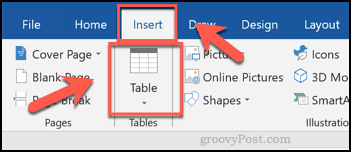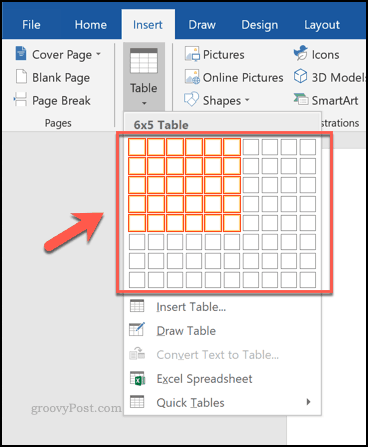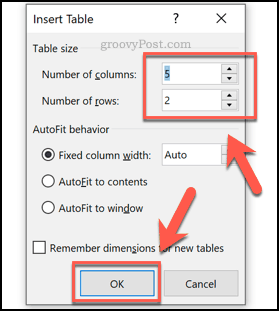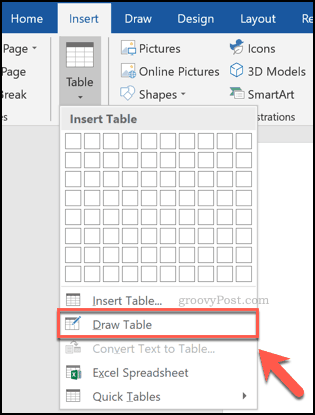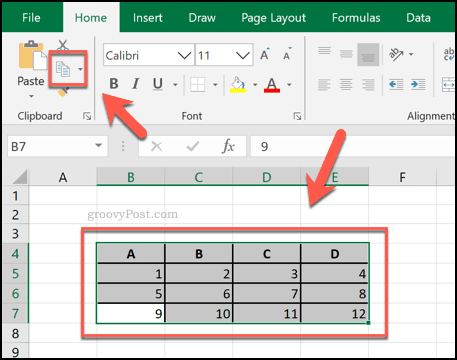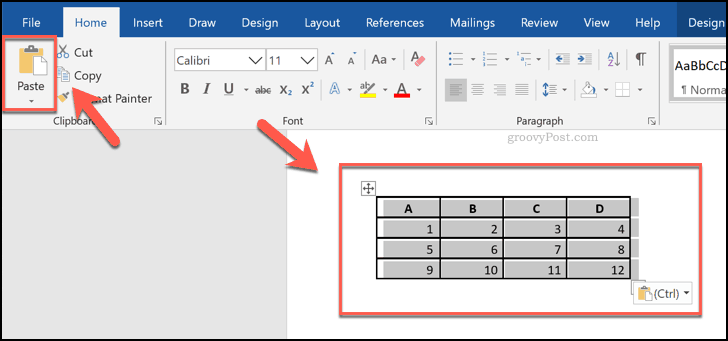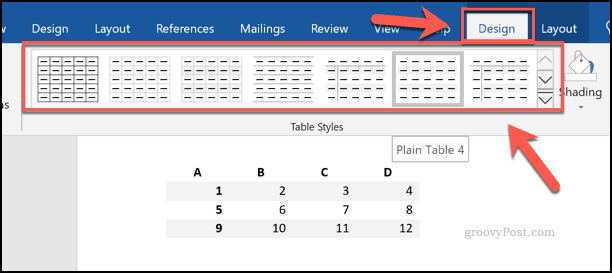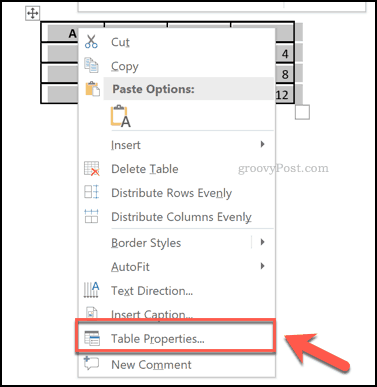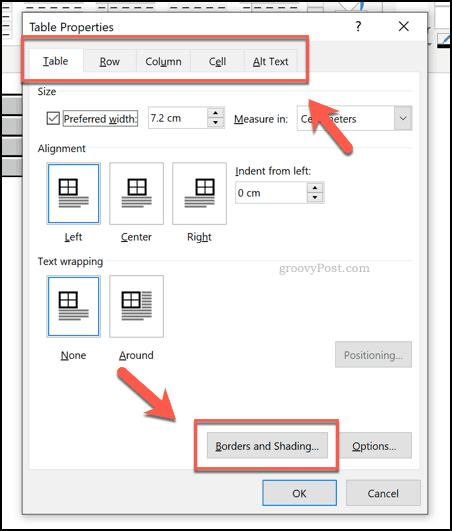There are a few methods you can use to create tables in Microsoft Word. You can insert, draw, or copy in a table from elsewhere, should you want to. Here’s how to create and customize tables in Microsoft Word following these methods.
How to Insert a Table in Microsoft Word
You can insert a table in Microsoft Word in several ways, but three ways are worth mentioning in particular. You can add a table by inserting it automatically with a set size, or you can draw a table manually using your mouse or trackpad. Alternatively, you can also copy and paste a grouping of cells from Microsoft Excel. Once pasted, Word will convert these cells into the format of a table. The instructions below should work for all recent versions of Word. There may be slight differences in older versions of Office, however. To add a table in Word, you’ll need first to open a blank or existing Word document and press the Insert tab on the ribbon bar. From here, click the Table button.
This will display a drop-down menu with various options. To insert a table automatically, select the size you want from the grid. Once pressed, the table will be inserted onto the page using the number of rows and columns you select.
Alternatively, press the Insert Table option, selecting the number of rows and columns you need from the Insert Table pop-up box that appears afterward.
You can also draw a table instead. From the Table drop-down menu, click the Draw Table option.
Using your mouse or trackpad, draw a table to the size you want on your chosen page. Once you’ve created the outer border for your table, you’ll need to draw downwards inside the table to add a column or horizontally to add a row.
As we’ve mentioned, you can also paste in a table using cells from a Microsoft Excel spreadsheet. To do this, open an Excel spreadsheet, select a grouping of cells and press Ctrl + C on your keyboard (or press Home > Copy).
Return to your Word document, then press Ctrl + V on your keyboard to paste the cells into your document (or press Home > Paste).
Formatting a Microsoft Word Table
Once your table is created in Word, you can then begin to format it. You can resize the table once it’s been created, as well as alter the bordering, font style, and more. One easy way to format your table is by using a table style. These apply preset formatting choices to your table. To add these, select your table, then press the Design tab under the Table Tools section on the ribbon bar. Click one of the options from the Table Styles section to apply that style to your table.
To add your own formatting, select and right-click your table, then press Table Properties.
You can set the size of your table using the options shown in the various tabbed menus in the Table Properties box. These include options to alter the length, width, and alignment of your table columns and rows. To change the border and shadings of your table, press the Borders and Shadings button at the bottom of the Table tab.
You can easily change other table formatting options, including the font, color, and other text styles, using the standard formatting options in Word. To do this, select the text in your table, then use the formatting options from the Font and Paragraph sections in the Home tab on the ribbon bar to make changes.
Bringing Microsoft Office Skills Together
Creating tables in a Word document is, as we’ve mentioned, a good way to organize and present your data. There are other ways you can do this, however. You could add and edit images in Microsoft Word to get your points across visually, for instance. If you want to stick with tables, don’t forget that it’s easy to copy data from Microsoft Excel and paste it into your Word document later. If you’re new to Excel, you might find these Excel beginner tips helpful.
![]()

